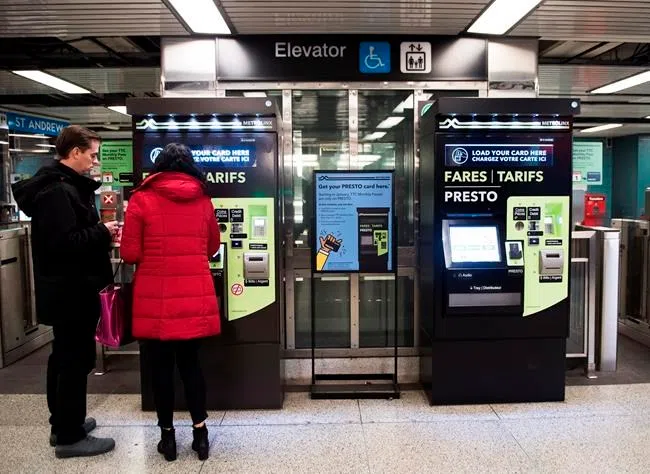
Toronto mayor, TTC union ask Ontario govt to step in on transit modernization
TORONTO — As the transit agency in Canada’s most populous city prepares to do away with its decades-old payment system, Toronto’s mayor and the union representing transit workers are asking the Ontario government to step in and fix what they describe as faulty technology in the higher-tech replacement.
December marks the last month commuters will be able to use Metropasses on the Toronto Transit Commission system as the network of buses, streetcars and subways switches over to Presto, an electronic tap-card payment system used mostly in southern Ontario. Transit tickets and tokens are also set to be phased out in mid-2019.
Some, however, have raised concerns that the technology isn’t reliable and won’t withstand the surge in Presto users in the coming months and beyond.
Toronto Mayor John Tory is urging the province to “get this program into shape to make sure it provides the reliable service that transit riders deserve,” his office said Sunday.
